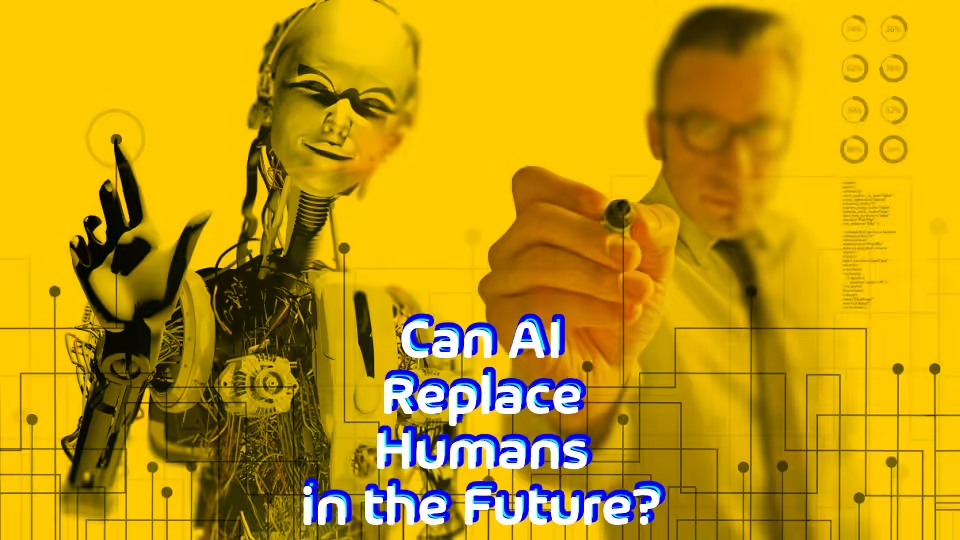Can AI Replace Humans in the Future?
Artificial Intelligence (AI) is rapidly advancing and has already surpassed human performance in many tasks such as playing complex games like chess and Go, recognizing images and speech, and even diagnosing medical conditions. With these achievements, it’s not surprising that many people are concerned about the future of work and whether AI will eventually replace human workers. In this article, we will explore the current state of AI, its limitations, and what the future may hold for human workers.
The Advancements of AI
AI has made tremendous progress in recent years, and its capabilities are increasing at a rapid pace. Deep learning algorithms, which are a type of AI, have been instrumental in this progress and have enabled machines to perform tasks that were previously considered too complex for them. For example, AI algorithms can now accurately recognize objects in images and translate languages, even in real-time. In the medical field, AI is being used to diagnose medical conditions, such as skin cancers, with similar accuracy to human doctors. Transforming the Future with AI
Limitations of AI
Despite these advancements, AI still has many limitations, and it is unlikely that it will be able to fully replace human workers in the near future. AI is currently best suited for performing well-defined, repetitive tasks, and it lacks the ability to understand context, emotions, and common sense. This means that it is difficult for AI to perform tasks that require creative problem-solving or decision making, which are essential for many jobs.
In addition, AI is currently designed and programmed by humans, and its capabilities are limited by the data it is trained on and the algorithms used. This means that AI can be biased, just like humans, and it is important to ensure that the data used to train AI algorithms is diverse and free of prejudice. How Artificial Intelligence is Revolutionizing Education?
Pros of AI:
- Increased Efficiency and Productivity: AI can automate repetitive tasks and make processes faster, allowing humans to focus on more complex and creative tasks.
- Improved Accuracy and Reduced Errors: AI algorithms can process vast amounts of data, reducing the likelihood of human error.
- 24/7 Availability: AI systems can work around the clock without rest, providing constant availability to customers.
- Cost Savings: By automating tasks, AI can help reduce labor costs and improve profitability.
- Better Decision Making: AI systems can analyze vast amounts of data to identify patterns and make informed decisions, faster and more accurately than humans.
Cons of AI:
- Job Loss: Automation and the increased use of AI could result in job loss for many workers, particularly those in low-skilled jobs.
- Bias and Discrimination: AI systems are only as good as the data they are trained on, and if the data is biased, the AI system will also be biased.
- Lack of Empathy: AI systems are not capable of empathy and emotional intelligence, which are important in many human-centered jobs such as healthcare and customer service.
- Security Concerns: AI systems can be vulnerable to hacking, potentially compromising sensitive information.
- Ethical Concerns: The use of AI raises ethical questions about accountability, responsibility, and privacy.
- Dependence on Technology: As AI becomes more integrated into our lives, we may become overly dependent on technology, potentially leading to a loss of critical thinking and problem-solving skills.
The Future of Work
The future of work is likely to be shaped by the increasing capabilities of AI and automation. Some jobs may be automated entirely, while others may be partially automated, with human workers and machines working together. The jobs that are most likely to be automated are those that involve repetitive tasks and do not require human creativity or empathy. For example, manual labor, such as assembly line work, is likely to be automated in the future.
However, many jobs that require human creativity and decision making are unlikely to be automated. For example, jobs in the arts, such as painting or writing, as well as jobs in the social services, such as counseling or therapy, are likely to remain the domain of human workers.
The Future of Education
As AI becomes more prevalent in the workplace, it is important for workers to develop new skills and adapt to the changing job market. The future of education will likely focus on teaching workers the skills they need to work effectively with machines, such as coding, data analysis, and problem solving.
In addition, it will also be important for workers to develop soft skills, such as empathy, creativity, and critical thinking, which are unlikely to be replaced by AI. These skills will become increasingly valuable as jobs become more automated, and workers who have them will be in high demand.
Conclusion
In conclusion, while AI has made tremendous progress in recent years, it still has many limitations, and it is unlikely that it will be able to fully replace human workers in the near future. The future of work is likely to be shaped by the increasing capabilities of AI and automation, and workers will need to adapt and develop new skills in order to remain competitive in the job market. However, jobs that require human creativity and decision making are unlikely to be automated, and workers who have these skills will be in high demand.
